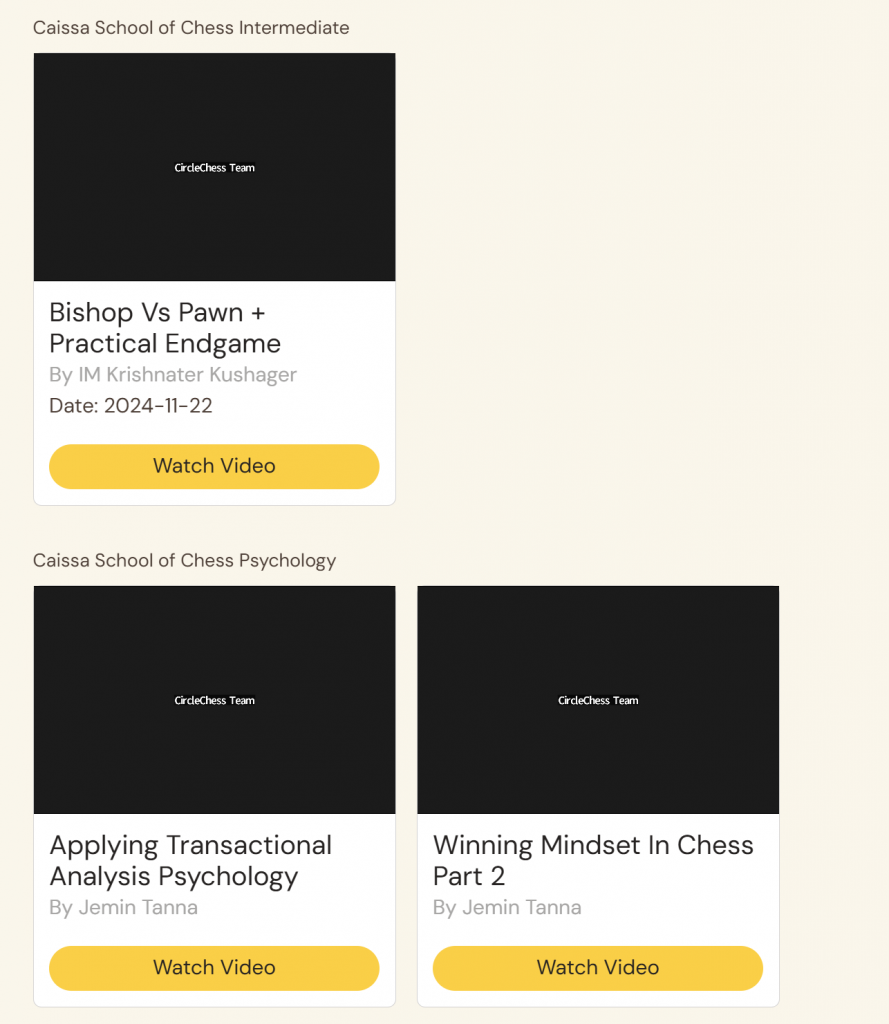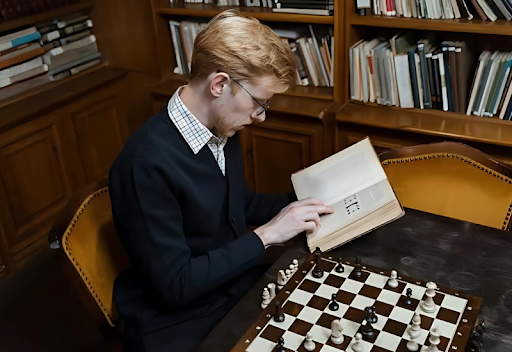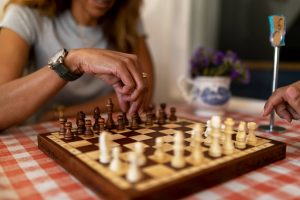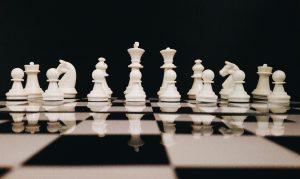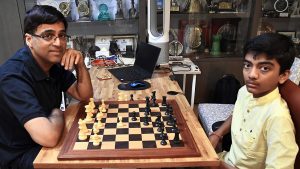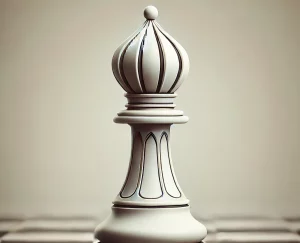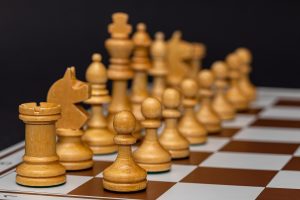Influential Books for Building a Strong Foundation
Building a strong foundation in chess is key to mastering the game. Books that focus on strategic concepts help players understand the principles that guide every move. Whether you’re new to chess or looking to solidify your basics, let’s explore the best chess books to become a grandmaster. They offer a deep dive into strategies that form the backbone of advanced play.
1. My System by Aron Nimzowitsch – Foundational Strategies
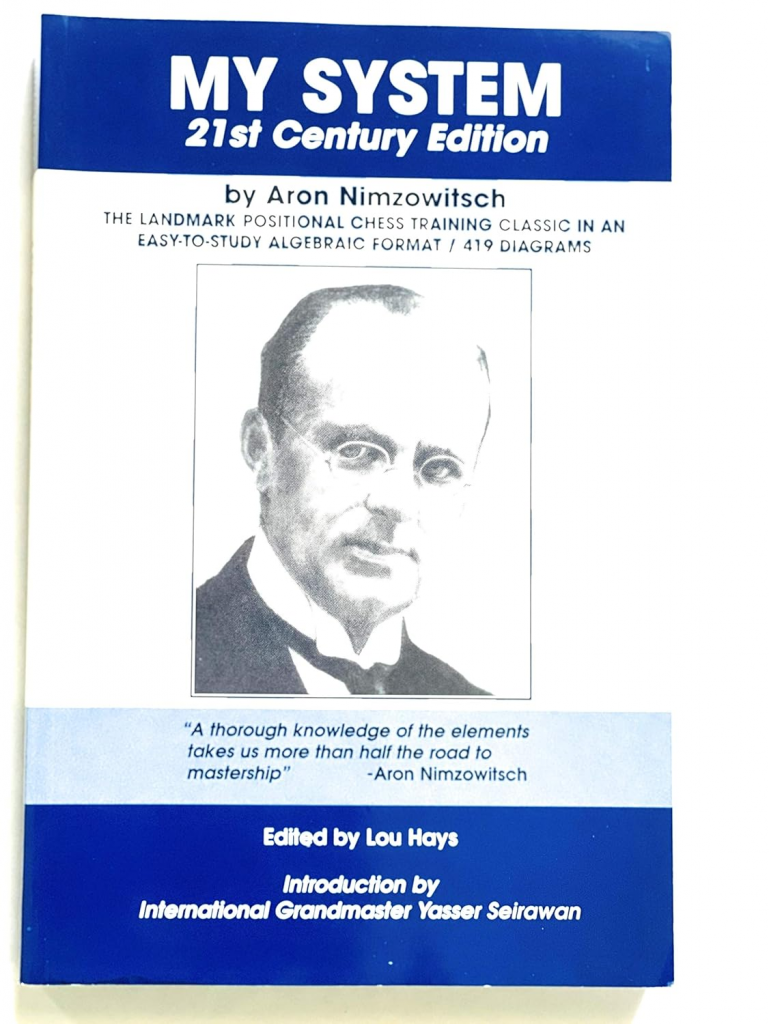
Considered one of the best chess books ever written, My System lays out the principles of positional play in a way that has shaped generations of chess players. Nimzowitsch’s focus on controlling the center, pawn structure, and the importance of overprotection has become foundational knowledge for anyone aiming for higher levels of play.
Why It’s a Must-Read: This book will deepen your understanding of positional chess, helping you master the art of controlling space and long-term planning.
Best for: Intermediate players looking to build a solid strategic foundation.
2. How to Reassess Your Chess by Jeremy Silman – Enhancing Evaluative Skills
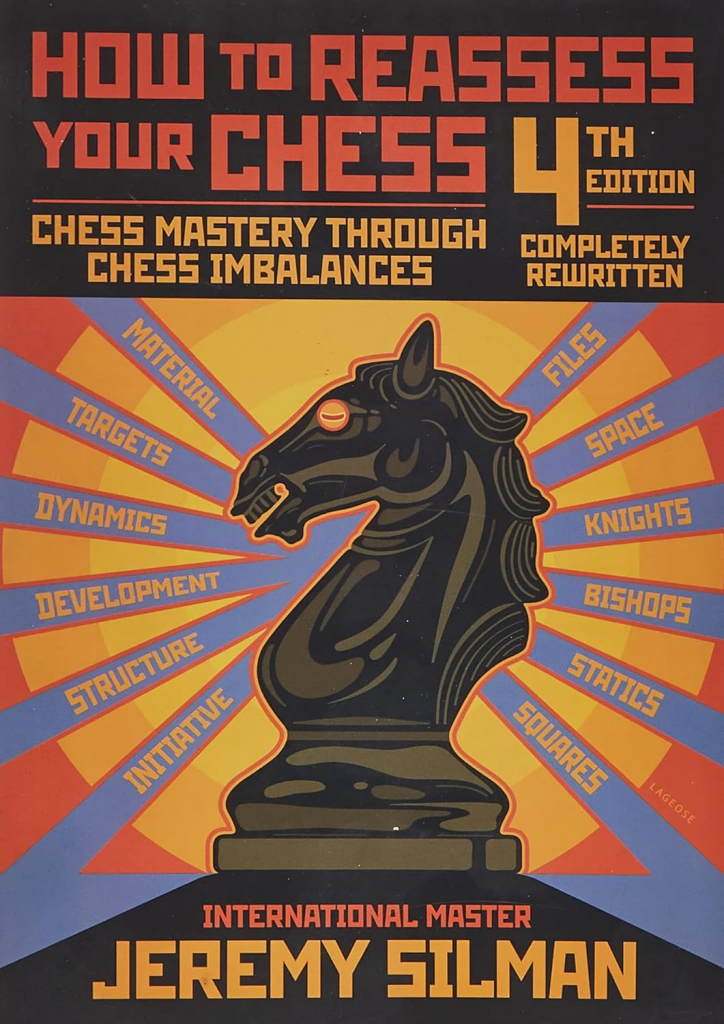
Silman’s classic focuses on how to evaluate positions properly and plan accordingly. The book’s unique “thinking technique” helps players understand imbalances in positions – elements like pawn structure, piece activity, and space advantages that are critical for making strong plans.
Why It’s a Must-Read: It gives you a framework for assessing any position, making it easier to formulate a game-winning plan.
Best for: Players transitioning from intermediate to advanced levels.
Books for Tactical and Strategic Improvement
Improving tactical and strategic skills in chess is crucial for players aspiring to reach the master level. Tactical mastery sharpens a player’s ability to seize opportunities, while strategic understanding allows for long-term planning and control of the game. These best chess books to become a grandmaster provide targeted exercises and insights, making them perfect for honing your competitive edge.
1. Test Your Chess IQ by A. Livshitz – Training in Tactics
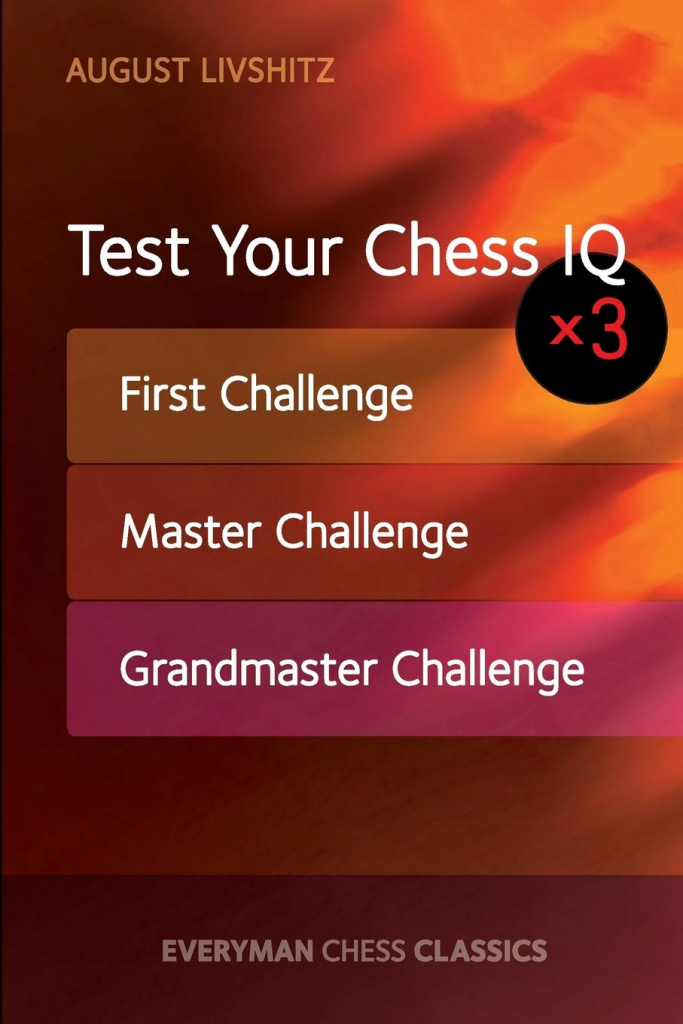
This book is a series of progressively challenging puzzles designed to sharpen your tactical vision. It’s a great way to train your brain to spot combinations and calculate accurately under time pressure.
Why It’s Crucial: It helps players internalize common tactical patterns, boosting calculation speed.
Best for: Players of all levels who want to improve their tactical awareness.
2. Secrets of Chess Training by Mark Dvoretsky – Advanced Calculation Techniques
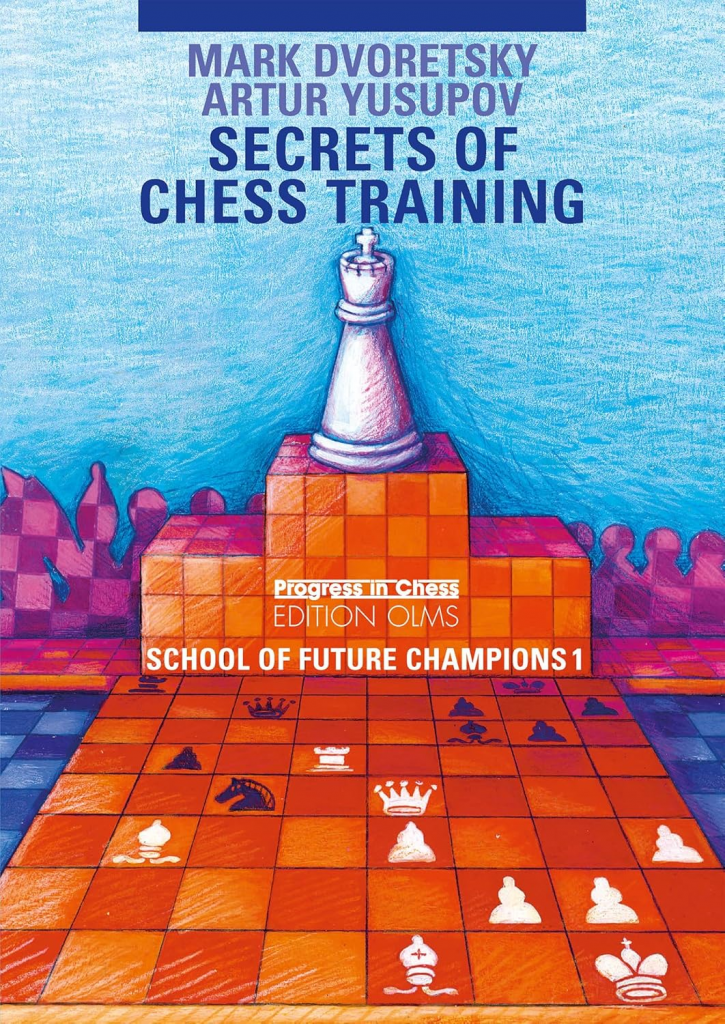
Dvoretsky’s books are known for their depth, and this one is no exception. It’s a guide for serious players who want to master calculation techniques, covering topics like visualization and tactical foresight.
Why It’s Crucial: It goes beyond basic tactics and into the realm of advanced problem-solving and endgame studies.
Best for: Advanced players looking to refine their calculation skills and strategic foresight.
Essential Reads for Mastering the Endgame
When it comes to chess, the endgame is where true mastery shines. It’s the phase where many games are won or lost, requiring precision and deep understanding. The right endgame book can turn a player’s grasp of this crucial stage from decent to brilliant. Whether you’re a beginner looking to improve or an advanced player aiming to fine-tune your skills, these chess books recommended by grandmasters offer the insights needed to turn those endgame positions into victories.
1. Dvoretsky’s Endgame Manual – Comprehensive Endgame Book
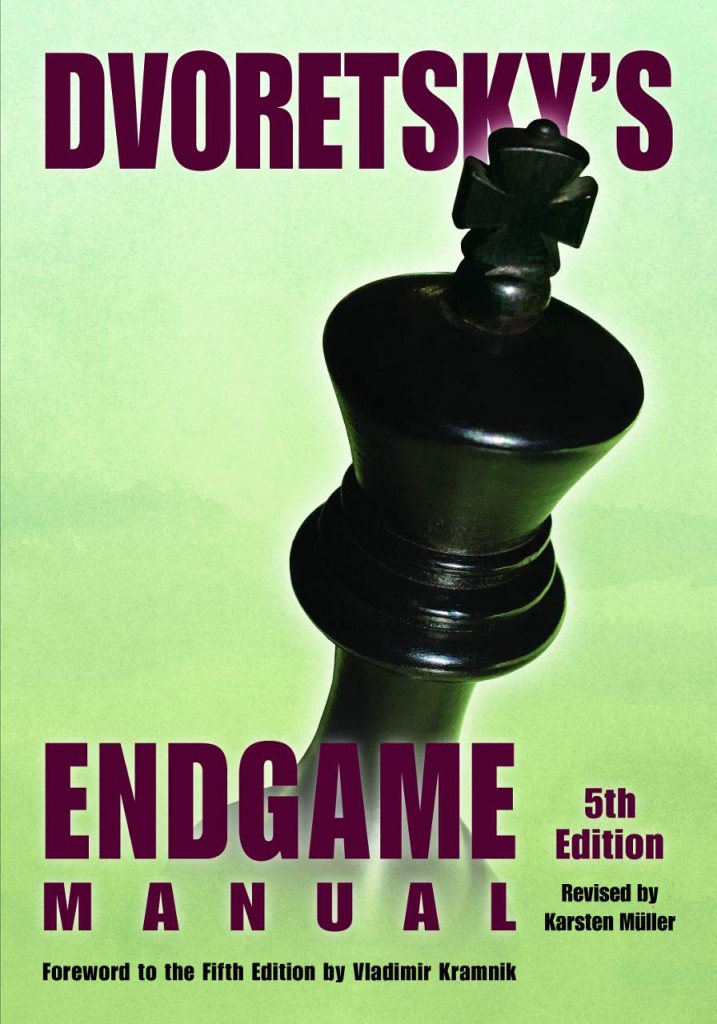
This book is often regarded as the bible of endgames, covering everything from elementary mates to complex endgame strategies. Dvoretsky’s systematic approach makes it easier for players to understand the key concepts and techniques required to convert advantages into wins.
Why It’s a Must-Read: Mastering the endgame is essential for converting winning positions – this book makes the process approachable and clear.
Best for: Intermediate to advanced players aiming to perfect their endgame technique.
2. 100 Endgames You Must Know by Jesús de la Villa – Practical Endgame Knowledge
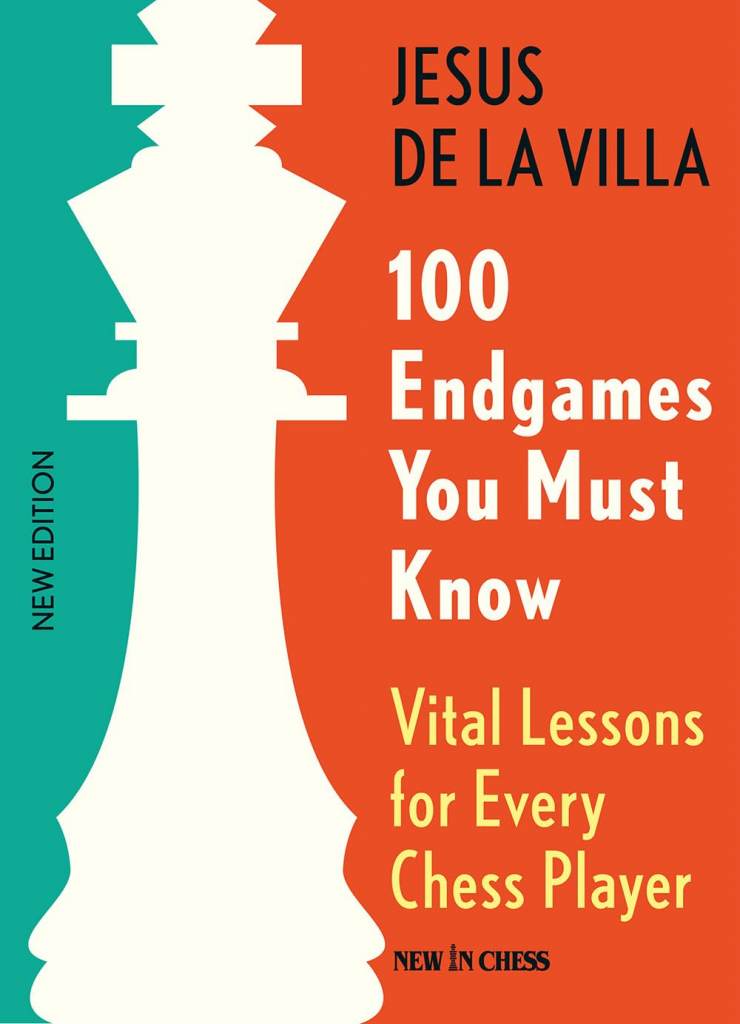
For those looking for a more concise guide, de la Villa’s book breaks down the 100 most essential endgames that every player should master. The format is straightforward, making it perfect for memorizing key ideas that often occur in games.
Why It’s Crucial: It focuses on the *practical side* of endgames, teaching you exactly what you need to know to save or win a match.
Best for: Players of all levels who want to build a solid endgame foundation.
Mastering the Art of Positional Play
Mastering positional play is essential for any aspiring grandmaster. It’s about understanding the long-term strengths and weaknesses of positions, rather than just looking for immediate tactical gains.
A strong grasp of positional strategy helps players make decisions that improve their pieces’ activity and control of the board, setting up long-term advantages. These best chess books for advanced players can provide the tools needed to recognize subtle positional nuances, guiding players toward a deeper understanding of this complex area of the game.
1. Modern Chess Strategy by Ludek Pachman – Improving Positional Play
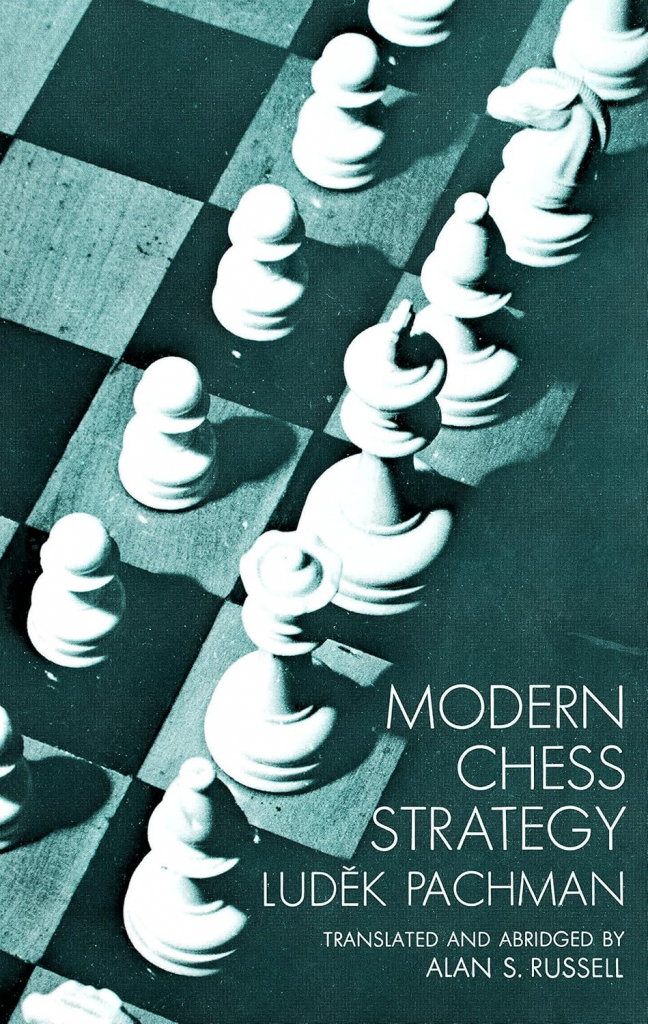
Pachman’s work dives deep into the elements of positional play, offering explanations on piece activity, pawn structure, and other positional factors. His emphasis on understanding positional strengths and weaknesses makes it a valuable resource.
Why It’s a Must-Read: It bridges the gap between strategy and execution, offering players a clear roadmap for improving positional understanding.
Best for: Intermediate players looking to deepen their grasp of strategic play.
2. Python Strategy by Tigran Petrosian – Defensive Tactics in Play
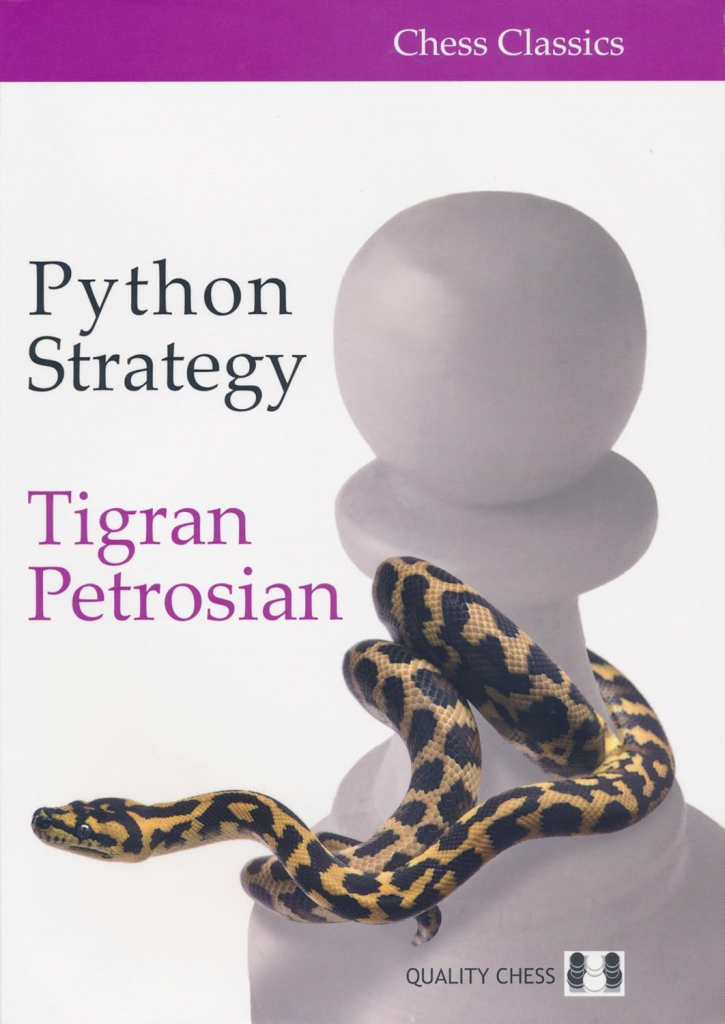
Petrosian, known for his defensive prowess, outlines his approach to the game in this classic. Python Strategy teaches you how to fortify your position, avoid weaknesses, and counterattack when the moment is right.
Why It’s Crucial: It teaches you the art of defense, an often-overlooked aspect of chess mastery.
Best for: Players who struggle with defensive play or want to add new layers to their strategic arsenal.
Revisiting the Classics and Learning from Legends
Understanding the great games of chess is like diving into the history of the sport. Game analysis books don’t just teach moves; they give insight into the thought process, strategies, and psychological battles that occur on the board. By studying these advanced chess books written by grandmasters, players can understand how grandmasters think and adapt those strategies into their own games.
1. My 60 Memorable Games by Bobby Fischer – Analysis of Key Games
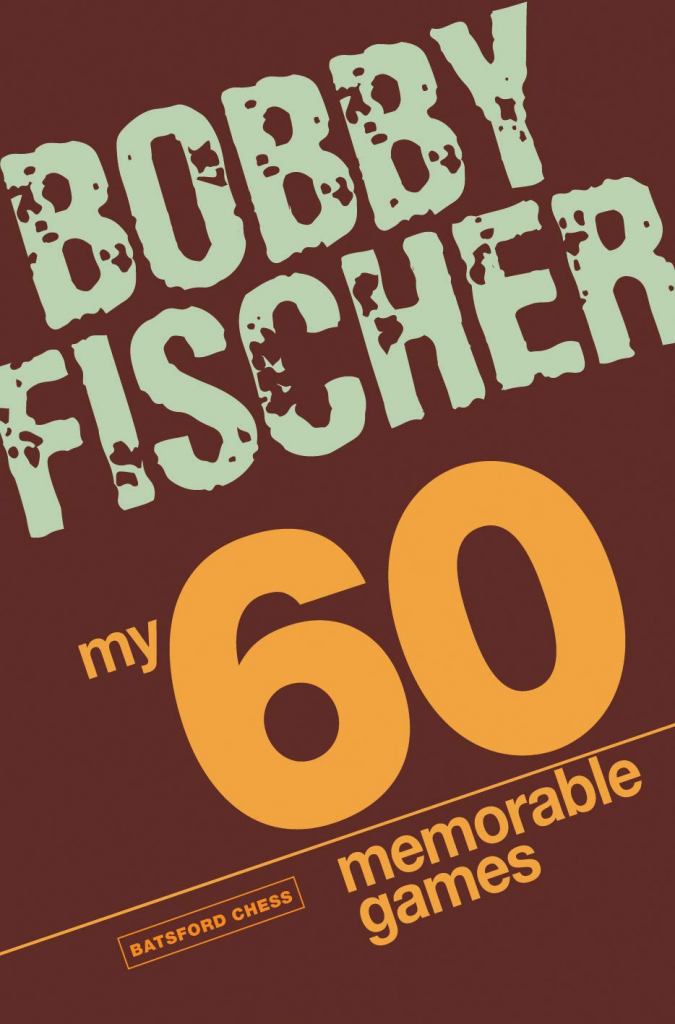
Bobby Fischer’s self-analysis of his games is a treasure trove of insights into the mind of a grandmaster. His commentary offers a window into his thought process, making it easier for players to learn from his brilliant moves and mistakes alike.
Why It’s a Must-Read: It gives readers a unique opportunity to understand how a grandmaster thinks through different stages of the game.
Best for: Players who enjoy learning through game analysis and real-world examples.
2. The Life and Games of Mikhail Tal – Insights from Tal’s Career
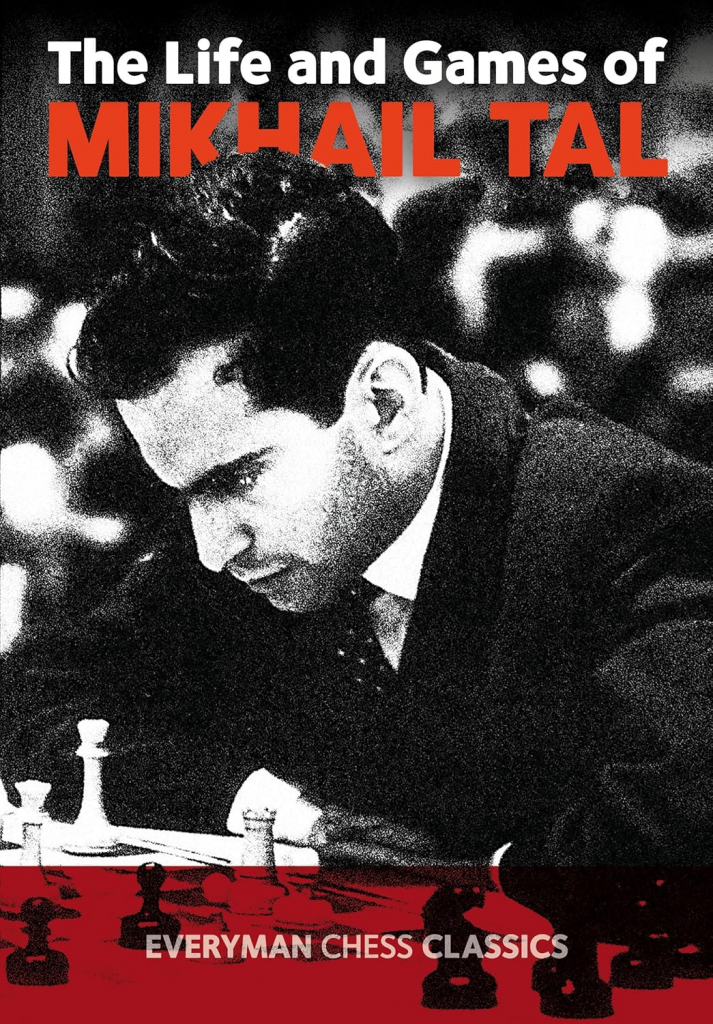
Mikhail Tal, known for his aggressive and imaginative style, shares his life story and the games that defined his career. His approach to attacking chess is both entertaining and educational, offering lessons in improvisation and creativity.
Why It’s a Must-Read: It provides inspiration and insights into a more creative approach to the game.
Best for: Players who want to add flair and boldness to their style.
3. Zurich International Chess Tournament 1953 by David Bronstein – Historical Tournament Analysis
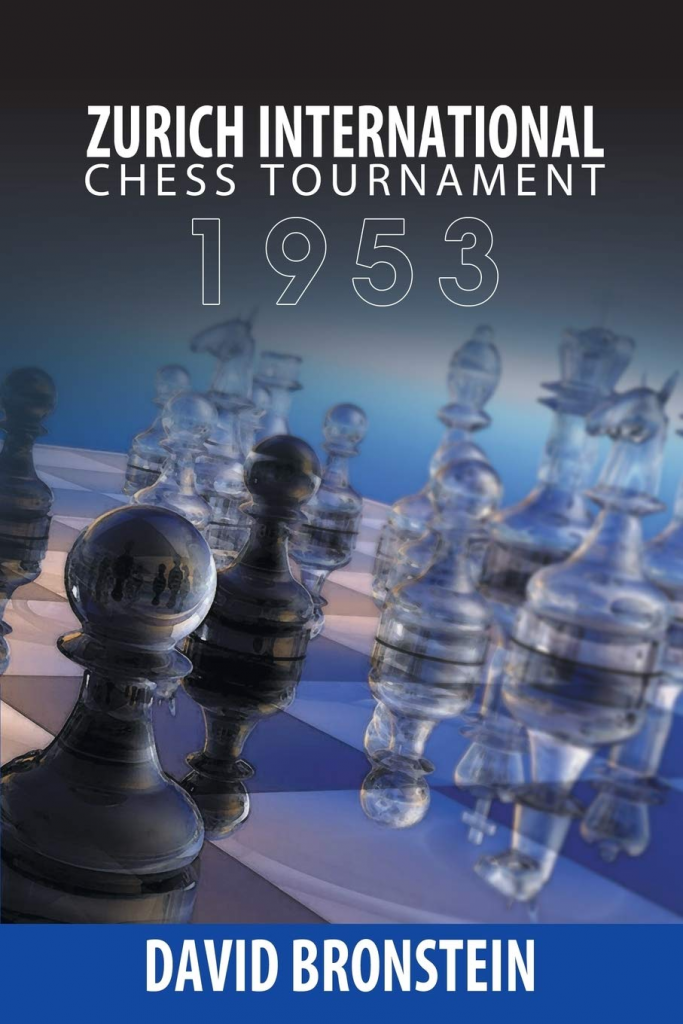
Bronstein’s analysis of Zurich International Chess Tournament 1953 stands out as one of the most detailed tournament books, offering a comprehensive look into one of the strongest tournaments ever played. Bronstein’s insights provide deep analysis of each game, revealing the strategies of chess legends like Smyslov, Keres, and Reshevsky. It’s a masterclass in understanding tournament-level strategy, making it a valuable study for anyone aiming to achieve a grandmaster level.
Why It’s Essential: The book captures the essence of high-level competitive chess, offering both historical context and strategic insights.
Best for: Advanced players looking to understand the mindset required for top-level competition.
Deepening Understanding through Challenges
Positional puzzles help players develop the ability to evaluate positions deeply, recognize patterns, and make decisions that gradually improve their standing on the board. These chess books for grandmasters focus on positional challenges and bridges the gap between strategy and practical play, offering a perfect blend of theory and application for those aiming to elevate their understanding of chess.
1. Test Your Positional Play by Bellin/Ponzetto – Strategic Themes with Tests
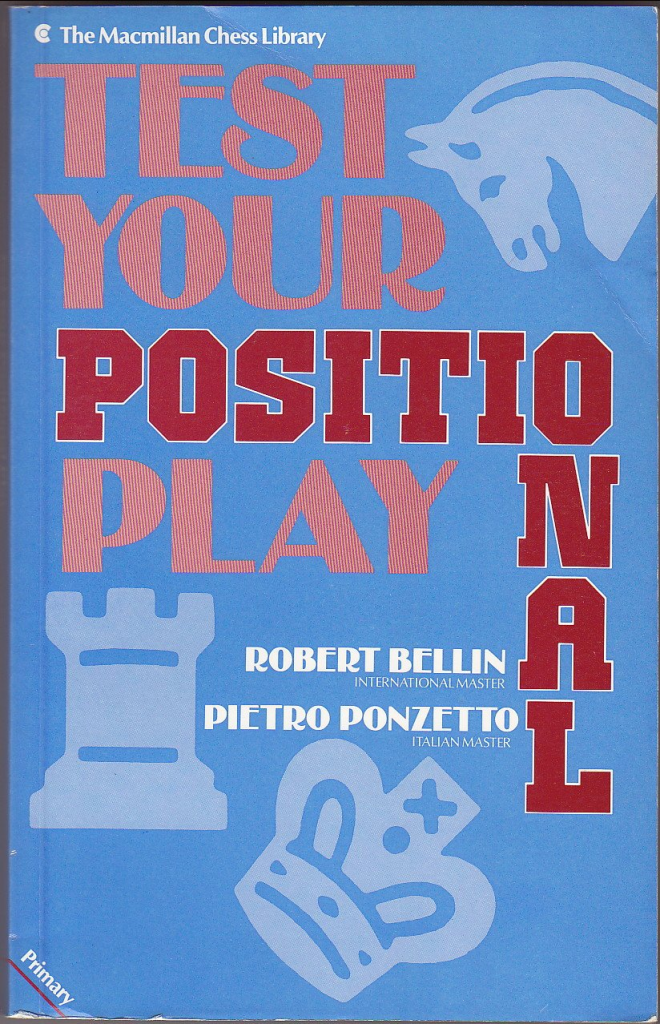
This book offers practical tests that challenge players to identify and execute strategic themes across various positions. It’s an engaging way to reinforce positional understanding, covering themes like weak squares, outposts, and pawn structure dynamics.
Why It’s Important: It combines learning with practical exercises, helping players internalize strategic ideas through application.
Best for: Players who enjoy interactive learning and want to reinforce their understanding of positional play.
2. The Art of Chess Analysis by Jan Timman – Detailed Game Analysis
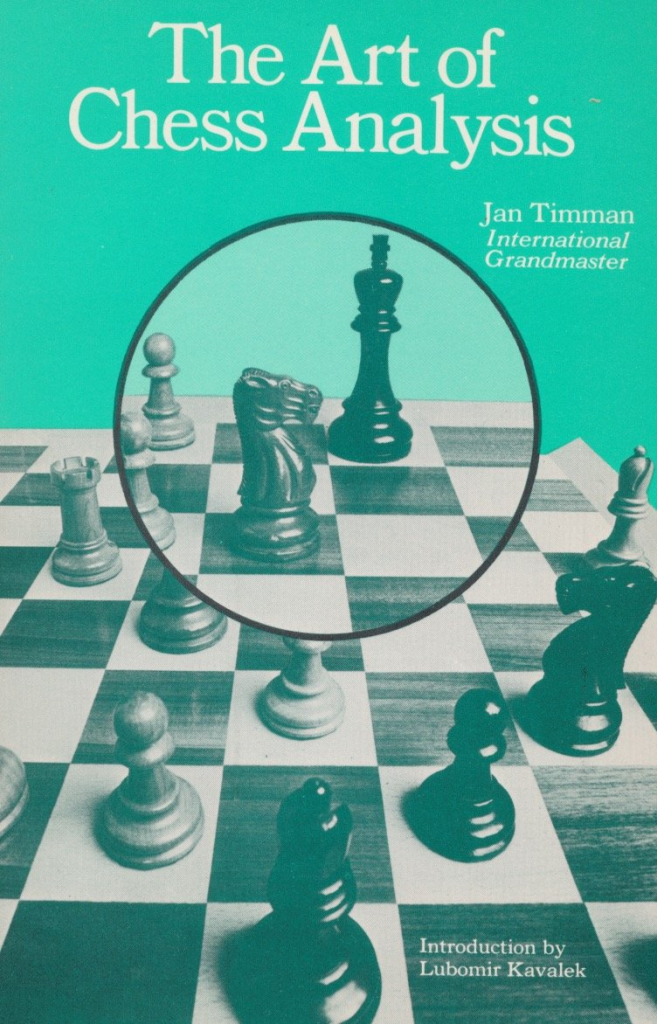
Jan Timman’s work is a deep dive into the art of analyzing chess games. His commentary helps players learn how to dissect a position, evaluate options, and find the most effective plan. It’s an essential read for those who want to refine their analytical skills.
Why It’s Crucial: Analysis is the cornerstone of improvement, and Timman’s methodical approach makes it accessible.
Best for: Advanced players looking to sharpen their game analysis techniques.
Reading Your Way to Chess Mastery
Becoming a grandmaster requires more than just memorizing openings or tactics – it demands a deep understanding of strategy, positional play, and the ability to adapt to different situations. Some of the best chess books like My System, Dvoretsky’s Endgame Manual, and How to Reassess Your Chess provide the foundation, while titles like The Life and Games of Mikhail Tal inspire creativity and boldness. By integrating these books into your study routine, you’ll be setting yourself on a path toward mastery.
Looking to blend book study with interactive learning? The Caissa School of Chess by CircleChess offers curated study plans and hands-on practice sessions tailored to the lessons from these classic books. Start your journey to grandmaster-level play today – because every move counts!
